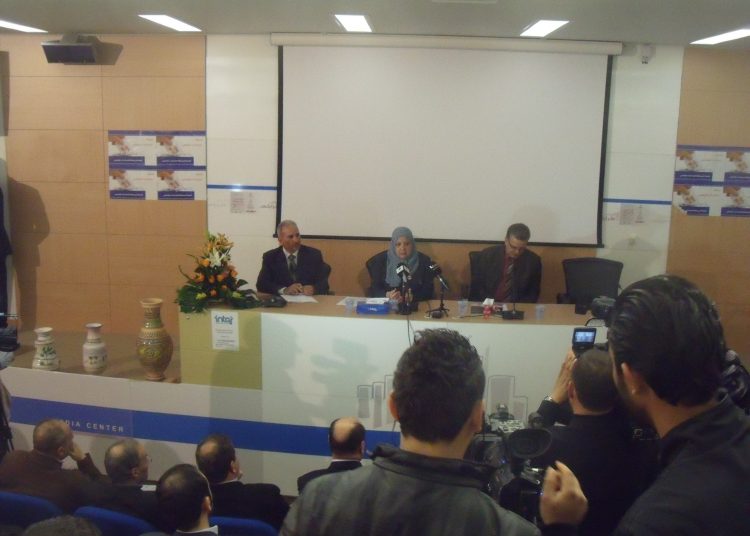By Sami Zaptia.

Tripoli, 29 December:
Tourism Minister Ikram Bashemam met with the heads of the Libyan tourism sector on Thursday 27 December at . . .[restrict]the Ministry of Tourism in Tripoli.
“I only actually started my job two days ago [Tuesday 25 December]” she pointed out. “I called this meeting mainly because of the fast approaching Umra season [the lesser Haj or pilgrimage to the holy sites in Saudi],” Bashemam said.
“I am here to hear from you and talk about solutions to the bottlenecks in your work. There are 1,255 tourism companies registered in Libya”, the Minister informed the packed room of about 200 representatives of the tourism sector.
After Minister Bashemam’s short introduction speech, she opened the floor to the industry leaders.
Bureaucracy and government red tape was one of the main complaints. One speaker complained that he needed about 12 files of paper in order to obtain his trade licence and that every paper in the file needed more papers to be obtained and financial guarantees.
He complained that almost all these documents needed annual renewal and called for documents that have a longer validity. “I have just finished renewing all the documentation for my company, and I will have to start renewing again soon,” he said.
Minister Bashemam responded by saying that regarding the issuing of trade licences she hoped to instigate a unified, one-stop window for tourism companies to streamline the process.
A head of Tobruk-based tourism company complained about the problem of centralization and being tied to flights from Tripoli and Benghazi. He complained that airlines give holy-sites travelers a bad service leaving passengers stranded in Saudi which reflects negatively and unfairly on Libya and Libyan travel agents.
The Minister replied that she was going to meet with the Ministry of Transport and will raise this issue with them.

Another tourism company complained that the former regime used to constrain the development of the tourism sector in Libya and specifically to Saudi and the holy sites of Mecca and Medina. He noted that Libya’s tourism sector could not act as one unified entity in the pursuit of their sector’s interests. “We need to unite and negotiate with the Saudi government as a unified group,” he said.
Bashemam responded by informing the audience that she had already had unofficial talks with the Saudi ambassador about these issues and about Libyans not getting treated as well as other nationalities – which she blamed on the old Libyan regime.
She hoped for a start that Libyans will no longer have to queue outside the Saudi embassy for visas. She also added that she will meet again with the Saudi ambassador to pass on the feedback from the meeting.
Another tourism company representative felt that the sector needed a clear vision, saying it had no identity in the Libyan economy. He felt that the tourism sector was a service sector but the Chambers of Commerce are concerned more with the products sector. The representative said that Libya needed its own Chamber of Tourism to help coordinate activities.
The meeting with the minister was part of a two-day exhibition by 23 tourism companies from Saudi Arabia, Jordan and Libya specializing in trips to the Muslim holy sites, held in Tripoli and sponsored by the Libyan Tourism Ministry.
Before the revolution it is estimated that about 75,000 Libyans visited Saudi on holy pilgrimages but recent estimates suggest that this figure has jumped to about 125,000 pilgrims after October 2011.
This is the first time this tourism exhibition was held since the 17 February Revolution, but the organizers said that it was first held back in 2004. They now hope that it will be an annual event.
[/restrict]









